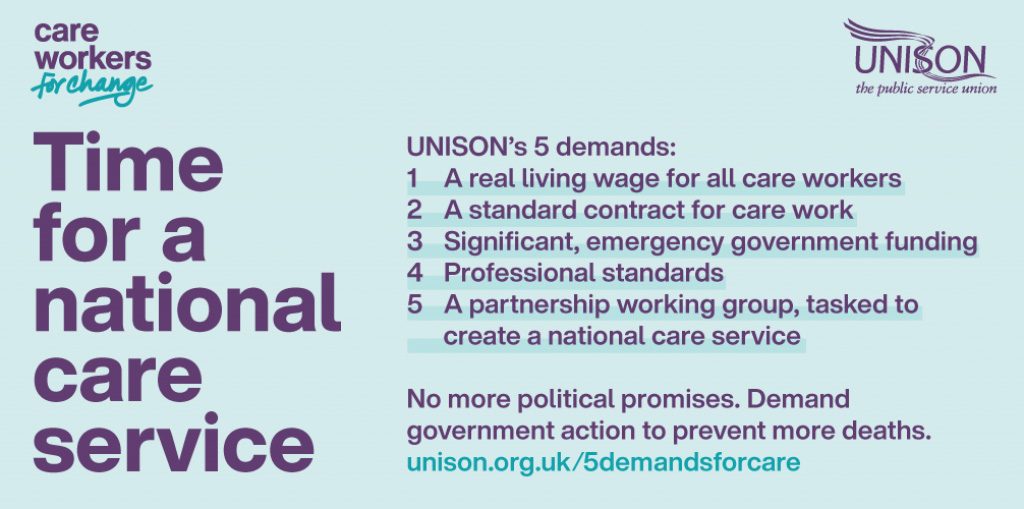Perhaps nowhere has been harder hit by Covid-19 than the social care sector.
However chaotic things got in hospitals, with widespread shortages of protective kit alongside the upheaval of rushed reorganisation of services, local Trusts were able to get on top of problems because the NHS is still and integrated, national service where resources can be diverted to where they’re needed.
Despite being just as integral to health of the nation, the whole structure of social care could scarcely be more different. Care homes and domiciliary care are provided by hotchpotch of private companies, most more interested in lining the pockets of shareholders than actually looking after society’s most vulnerable.
Local councils commission services but often exercise little control over how they’re delivered, in some cases because they don’t want to but in other cases because privateers with much-needed bed space feel they can dictate their terms.
It’s meant half of all Covid-19 deaths have been in care homes.
And it’s not just the residents who have suffered. Social care staff have died at twice the rate of the general working age population. Our organisers have been working flat out to secure proper PPE for staff from homes but most still refuse to provide anything more than statutory sick pay when ill or shielding, forcing these low-paid workers to put themselves and others at risk.
I would say that the system is broken, but it was never designed to work.

It’s clear that major changes are needed to the whole ownership structure of the social care sector. As the largest trade union for care workers we are clear about the changes that are desperately needed.
Our members have been exploited for too long – and the impact on residents and service users are obvious. Low pay, inadequate training and poor health and safety are endemic in the care sector. This results in staff turnover rates of greater than 30% which makes it incredibly hard to deliver the best quality care.
What we need is a national care service.
UNISON has put forward five demands for a national care service so that staff and service users are properly valued.
- A real living wage for all care workers, as an absolute minimum.
- A standard employment contract for care work – including sick pay, contracted hours and pay for all hours on duty, including ‘sleep ins’ and travel time.
- Significant, emergency government funding.
- Professional standards – the Care Certificate should be upgraded and expanded and professional registration should be standardised throughout the UK.
- A partnership working group of commissioners, providers, governments and trade unions must be established to action solutions.
And it’s not just the residents who have suffered. Social care staff have died at twice the rate of the general working age population. Our organisers have been working flat out to secure proper PPE for staff from homes but most still refuse to provide anything more than statutory sick pay when ill or shielding, forcing these low-paid workers to put themselves and others at risk.
It’s a big ask. But if we work together we can make the government act.
Talk to your family, friends and colleagues. Ask them if they support the demands. Ask them to get involved.
Let’s make our care sector fit for the future.


